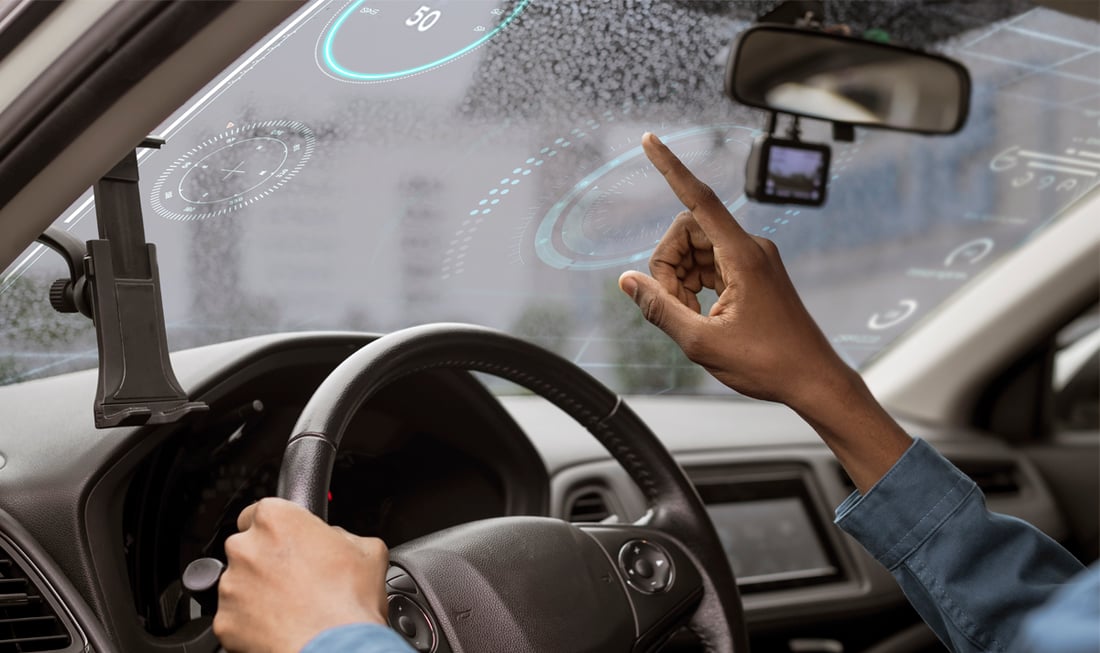Artificial Intelligence (AI) is based on the concept of creating intelligent systems that can process large amounts of data, recognize patterns, make decisions, and learn from experience. This technology is already being applied in a wide range of sectors and activities, from virtual assistants on mobile devices and recommendation systems in e-commerce platforms to autonomous vehicles, advanced medical diagnostics, and complex data analysis.

With the advent of AI, many industries are experiencing significant transformation. Some technologies that have gained popularity include chatbots, such as OpenAI's ChatGPT or Google's Bard, as well as image-generating AI like Midjourney or Abode's Firefly. In this blog, we wonder to what extent this technology will impact the fleet management industry in the near future.
The Theoretical Impact of AI on Fleet Management in the Future
While AI is disrupting various industries, it's relevant to ask, does this also happen in the fleet management industry? Will AI revolutionize the industry forever? We conducted a small investigation on this, and we found that the information regarding this is still very speculative.

To begin with, the concept of applied Artificial Intelligence is not yet clear, and neither are its limitations and possibilities. It's challenging to precisely verify that a technology effectively involves the use of AI. Some of the features mentioned in different media are promoted as something already present in our days, while others list them as something that the future holds. Some of the attributes attributed to AI in the field of fleet management are:
- Advanced Connectivity: AI will provide asset management platforms with all the necessary data for monitoring and diagnosing each unit and the entire fleet with unprecedented precision, in addition to offering significant capabilities for remote diagnostics.
- Automation and Autonomous Vehicles: Machine learning algorithms and AI decision-making capabilities will enable heavy vehicles to drive autonomously and perform tasks like loading and unloading of goods.
- Advanced Planning: AI will enhance the ability to predict patterns and behaviors in fleet management, such as service demand and personnel needs. For example, it will keep a record of driving habits and estimate route times more efficiently. This will allow for more precise planning and efficient resource allocation.
- Enhanced Customer Experience: AI will be used to personalize the user experience, providing services tailored to individual needs. For example, automatic passenger identification and recognition of preferences and behavior patterns will represent a wide range of possibilities for personalizing the onboard experience in terms of safety, assistance, entertainment, and comfort.
- Demand Prediction: AI can analyze historical data and external variables to predict future demand for freight transportation services. This helps fleets plan more effectively and allocate resources according to projected demand, resulting in faster order processing, optimized inventory management, and reduced delivery times.
There is no doubt that technology is advancing faster and faster, but there are aspects that require a long process, and its adoption in various areas takes more time than initially thought. In some of these areas, its implementation may not be as necessary or may present more operational challenges than it solves.
Will AI Revolutionize Fleet Management?
We believe this scenario is still distant. While there are hardware solutions that integrate AI, such as dashcams with ADAS/DSM (Advanced Driver Assistance Systems/Driver Monitoring System) technology and facial recognition, applying this type of technology to other aspects is more challenging. At the platform level, data processed by AI from dashcams like these is received and recorded as an event, but AI breaking into other processes is challenging to predict.
While AI focused on fleet management is still in the distant future, there are intelligent algorithms that can optimize delivery routes and save time. Although these are not yet considered artificial intelligence, we could say they are one step closer than other technologies involved in a GPS tracking platform.
We deviate a bit from the current trend of claiming that the future has already arrived, and AI will change all aspects of our lives, at least in fleet management. We believe that making such statements lightly can be counterproductive. However, we are attentive to industry trends and welcome changes with enthusiasm but also caution and reflection.
You Might Also Be Interested In
What should you do if a GPS tracker stops working? |
5 Benefits of Real-Time GPS Tracking |
GPS Tracking Focused on Security: Guide 2023 |